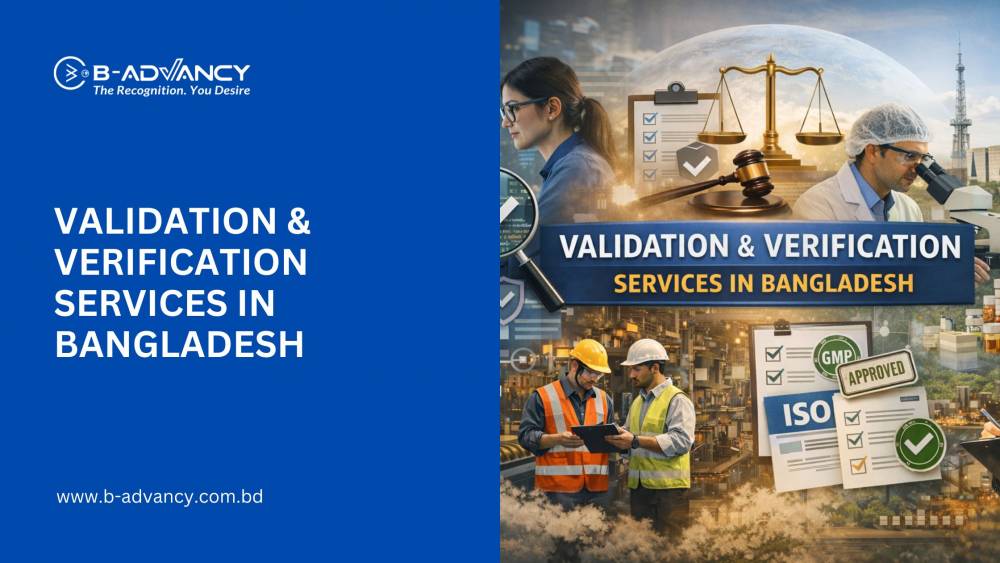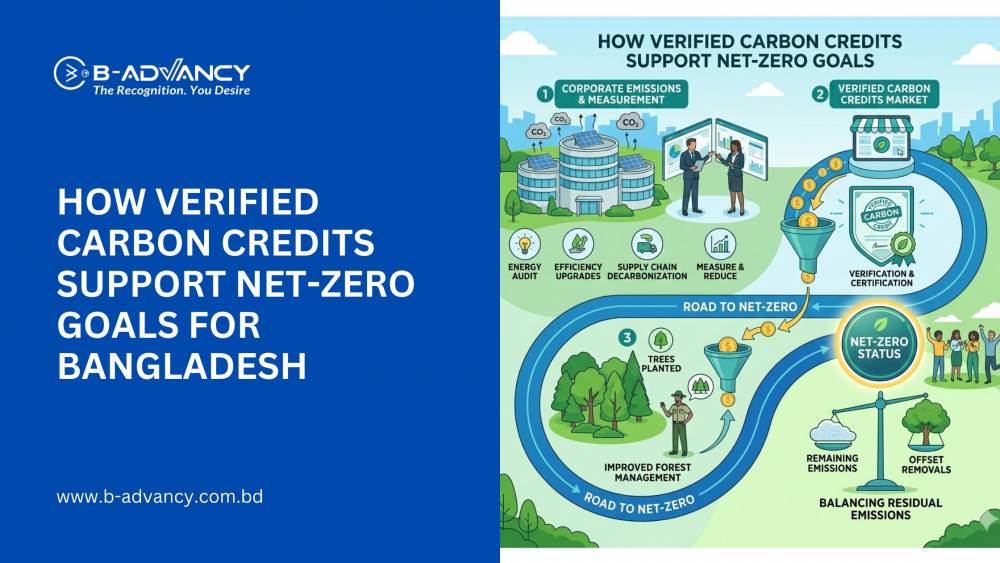The textile and apparel industry is a cornerstone of Bangladesh’s economy, contributing significantly to employment, exports, and GDP. As the global market becomes more competitive, maintaining high standards of quality, safety, and sustainability is essential for success. ISO certification offers a globally recognized framework that helps textile and apparel companies meet these standards, ensuring they remain competitive and compliant with international regulations. In this blog, we will discuss the importance of ISO certification for the textile and apparel industry in Bangladesh, the relevant ISO standards, the benefits of certification, and how you can start your certification journey with B-ADVANCY Certification Limited. Additionally, we will provide references to key authorities in Bangladesh that oversee and support industry standards.
What is ISO Certification and Why is it Important for the Textile and Apparel Industry?
ISO certification is an endorsement from the International Organization for Standardization (ISO) that a company meets one of its internationally recognized management system standards. For the textile and apparel industry, ISO certification is crucial for demonstrating a commitment to quality, safety, and sustainability—factors that are increasingly important in global supply chains.
In Bangladesh, the textile and apparel sector is the largest export industry, supplying garments to leading global brands. Adopting ISO standards can help these companies ensure consistent quality, reduce production costs, and enhance market competitiveness. Moreover, ISO certification can facilitate access to international markets, where compliance with global standards is often a prerequisite.
Key ISO Standards for the Textile and Apparel Industry
Several ISO standards are particularly relevant for the textile and apparel industry in Bangladesh:
ISO 9001:2015 - Quality Management Systems
ISO 9001:2015 provides a framework for a robust quality management system (QMS) that ensures products consistently meet customer and regulatory requirements. This standard is essential for maintaining high product quality and improving customer satisfaction in the textile and apparel industry.
ISO 14001:2015 - Environmental Management Systems
The textile and apparel industry can have a significant environmental impact, particularly in terms of water usage, waste management, and chemical pollution. ISO 14001:2015 helps companies manage their environmental responsibilities systematically, promoting sustainability and reducing their ecological footprint.
ISO 45001:2018 - Occupational Health and Safety Management Systems
Worker safety is a critical concern in the textile and apparel industry, where employees are often exposed to physical and chemical hazards. ISO 45001:2018 provides a framework for identifying and mitigating workplace risks, ensuring a safer working environment.
ISO 50001:2018 - Energy Management Systems
Energy consumption is a major factor in textile and apparel production, especially in processes like dyeing and finishing. ISO 50001:2018 helps companies optimize their energy use, leading to cost savings and a reduced carbon footprint.
ISO 26000:2010 - Social Responsibility
ISO 26000:2010 offers guidance on social responsibility, emphasizing ethical behavior, respect for stakeholder interests, and sustainable development. For the textile and apparel industry, this standard is particularly relevant given the global focus on ethical sourcing and fair labor practices.
Benefits of ISO Certification for the Textile and Apparel Industry in Bangladesh
Enhanced Product Quality and Consistency
ISO certification helps textile and apparel companies maintain consistent product quality, which is crucial for meeting the expectations of international buyers. This can lead to stronger customer relationships and repeat business.
Improved Environmental Performance
Implementing ISO 14001:2015 helps companies reduce their environmental impact, which is increasingly important for meeting the sustainability expectations of global brands and consumers.
Increased Operational Efficiency
ISO standards promote the streamlining of processes, reducing waste, and optimizing resource use. This leads to cost savings and higher productivity, which are critical in the highly competitive textile and apparel industry.
Compliance with Regulatory Requirements
ISO certification helps companies comply with both local and international regulations. This is crucial for avoiding legal issues and ensuring uninterrupted operations, especially in export markets.
Enhanced Market Access and Competitiveness
ISO-certified companies are often viewed as more reliable and trustworthy by international buyers. Certification can help attract new customers, partners, and investors, enhancing market access and competitiveness.
Steps to Achieve ISO Certification for Your Textile and Apparel Business
Achieving ISO certification involves several key steps:
Initial Assessment and Gap Analysis
Start by assessing your current processes against the requirements of the relevant ISO standard. Identify gaps and areas needing improvement to meet the certification criteria.
Develop and Implement a Management System
Design and implement a management system that complies with the chosen ISO standard. This may involve documenting processes, setting objectives, and training employees on new procedures.
Internal Audit and Management Review
Conduct internal audits to ensure your management system is effective and compliant. Regular management reviews are essential to address any issues and drive continuous improvement.
Select a Certification Body
Choose a reputable certification body, such as B-ADVANCY Certification Limited, to conduct an external audit. Prepare thoroughly for this audit to demonstrate compliance with the ISO standard.
Achieve Certification and Commit to Ongoing Improvement
After a successful audit, you will receive ISO certification. It’s important to maintain and improve your management system to retain certification and continue benefiting from it.
References to Key Authorities in Bangladesh
For more information and support on industry standards and regulations, you can refer to the following authorities in Bangladesh:
-
Bangladesh Garment Manufacturers and Exporters Association (BGMEA)
The BGMEA is a key authority representing the garment industry in Bangladesh, providing resources and support for compliance with international standards.
BGMEA Website -
Bangladesh Textile Mills Association (BTMA)
BTMA is the principal organization representing the textile mills in Bangladesh, offering guidance on industry standards and sustainability practices.
BTMA Website -
Bangladesh Standards and Testing Institution (BSTI)
BSTI is the national standards body responsible for developing and promoting standards, including those related to the textile and apparel industry.
BSTI Website -
Department of Environment (DoE), Bangladesh
The DoE oversees environmental regulations and sustainability practices, particularly relevant for companies implementing ISO 14001:2015.
DoE Website
B-ADVANCY Certification Limited can guide you through these challenges with expert support, making the certification process more manageable and efficient. To contact them: Email: bangladesh@b-advancy.com | Call: +8801612264559
Conclusion
ISO certification is more than just a credential for the textile and apparel industry in Bangladesh; it is a strategic investment that can significantly enhance product quality, operational efficiency, and market competitiveness. By aligning your processes with internationally recognized standards, your business can achieve consistent product safety, improve customer satisfaction, and gain a competitive edge in both local and global markets. While the certification journey may present some challenges, the long-term benefits far outweigh the initial efforts.





































































































































































































